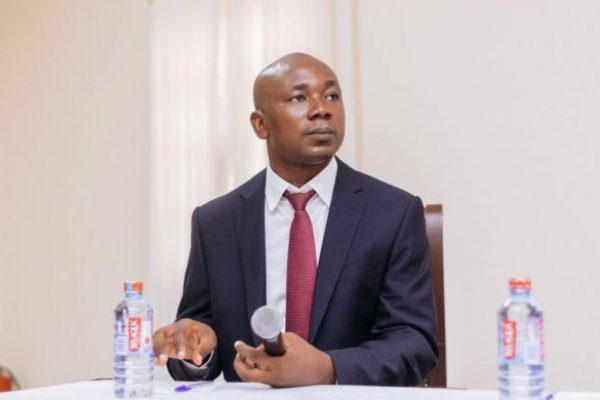Economist and Professor of Finance at the University of Ghana Business School (UGBS), Prof Godfred Bokpin believes the government will have a difficult time convincing individual bondholders to participate in the Domestic Debt Exchange Programme (DDEP).
According to him, individual bondholders, mostly pensioners, have had their share of suffering from the economic crisis since the past year, and as a result, they were adamant about being included in the programme.
"It was always going to be difficult to include individual bondholders, especially pensioners. In such difficult times, they’ve been living through…inflation era for the past 12 months. So even these bonds that we are talking about, they having haircuts here and there, they’ve really suffered from inflationary pressures, the news is negative in real terms, and all of that."
“I think for the sake of our democracy, and social cohesion and stability, I think it is prudent that individual bondholders are excluded,” Prof Bokpin said on The Probe on Sunday.
Prof Bokpin also commended the technical committee on the debt exchange programme for proposing other alternatives on revenue and expenditure to be considered by the government.
According to him, the committee helped to clarify the quantification of many individual bondholders' grievances in terms of fiscal savings through measures such as spending cuts and other revenue enhancement.
Prof Bokpin also stressed that he believed the technical committee’s actions were quite illustrative of the level of wakefulness that has presided over Ghanaians over the years.
Ghana's economy is still recovering from the pandemic and the government is attempting to restructure its massive debt load in order to qualify for assistance from the International Monetary Fund.
Thus, the Ministry of Finance introduced a domestic debt exchange programme on December 5, 2022.
The country needs about 80% of bondholders to sign up for its domestic debt exchange programme, however, individual bondholders have since opposed the programme due to what they say is a lack of clarity about its terms.
Eventually, it was disclosed in a press release dated January 23, that the government has come to an agreement with the Ghana Association of Banks to pay a 5% coupon on its 2023 bonds, which the original debt exchange plan had said would not pay interest.
Additionally, it was stated in the deal that all other restructured bonds will pay 9% coupons rather than the variable rates originally outlined.
Latest Stories
-
Paris 2024: Opening ceremony showcases grandiose celebration of French culture and diversity
3 hours -
How decline of Indian vultures led to 500,000 human deaths
4 hours -
Paris 2024: Ghana rocks ‘fabulous fugu’ at olympics opening ceremony
4 hours -
Trust Hospital faces financial strain with rising debt levels – Auditor-General’s report
5 hours -
Electrochem lease: Allocate portions of land to Songor people – Resident demand
5 hours -
82 widows receive financial aid from Chayil Foundation
5 hours -
The silent struggles: Female journalists grapple with Ghana’s high cost of living
5 hours -
BoG yet to make any payment to Service Ghana Auto Group
5 hours -
‘Crushed Young’: The Multimedia Group, JL Properties surprise accident victim’s family with fully-furnished apartment
6 hours -
Asante Kotoko needs structure that would outlive any administration – Opoku Nti
6 hours -
JoyNews exposé on Customs officials demanding bribes airs on July 29
7 hours -
JoyNews Impact Maker Awardee ships first consignment of honey from Kwahu Afram Plains
8 hours -
Joint committee under fire over report on salt mining lease granted Electrochem
8 hours -
Life Lounge with Edem Knight-Tay: Don’t be beaten the third time
8 hours -
Pro-NPP group launched to help ‘Break the 8’
8 hours

